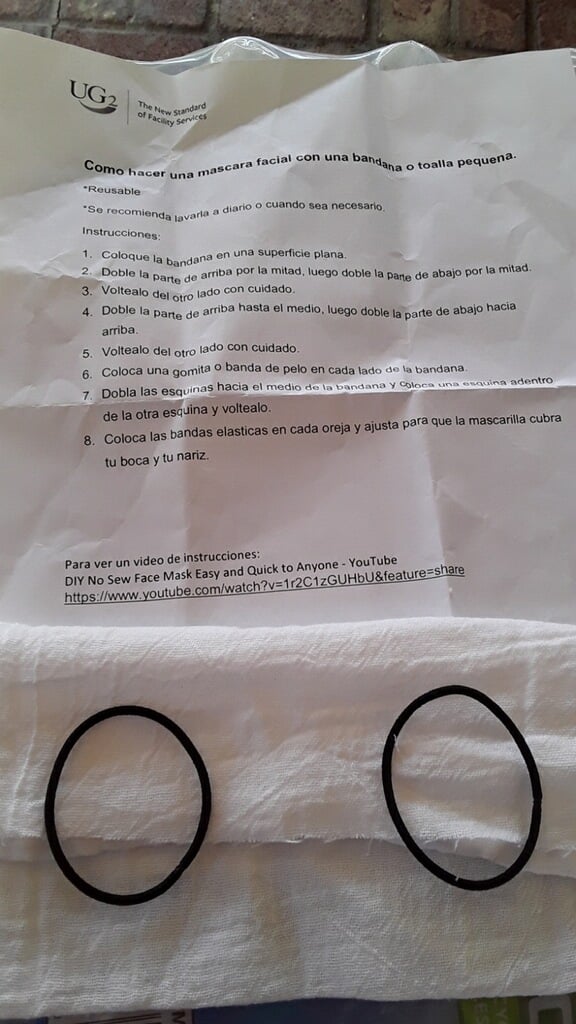First, UG2 gave her a piece of cloth and a paper with instructions on making a mask out of it. Then, she found out from other employees that one of her coworkers, who had left work sick, had tested positive for COVID-19.
“I do not feel protected,” said the UG2 employee, who wished to remain anonymous for fear of retaliation. “UG2 is only interested in Stanford continuing to pay it as we, the workers, expose ourselves more and more.”
UG2 Director of Operations Grover Brown confirmed that a UG2 employee tested positive for COVID-19 on April 11, which has led employees, union representatives and students to raise concerns about whether the contract company, which employs campus service workers, has taken sufficient precautions to protect employees as the coronavirus spreads.
“Safety is UG2’s top priority,” Brown wrote in a statement to The Daily.
UG2 has also requested that three other employees who had carpooled with the confirmed employee self-quarantine for 14 days. These employees have not reported symptoms and will be paid during the quarantine period, according to Brown.
The concerns about worker safety follow student and faculty activism for the University to extend pay continuation to subcontracted employees until the end of the quarter. The University committed on Wednesday to work with contract firms to ensure employees maintain “income and benefits” through June 15.
Brown confirmed that UG2 had given employees cloth with instructions to make their own masks. The company mandated the use of face coverings or a mask on March 7, and on March 12 required that all employees wear gloves, which UG2 supplies to employees.
“This is consistent with recent CDC recommendations,” Brown wrote, adding that the decision to require masks came before the positive test. “Since masks are in short supply, we wanted to provide an acceptable alternative.”
In addition to the masks, UG2 is also reminding staff to practice good hygiene, providing staff with information about the virus, monitoring staff health, enforcing social distancing and enhancing cleaning of UG2’s office, according to Brown.
But the UG2 employee said the company was not adequately enforcing the new policies in place — for example, saving disinfecting supplies like wipes to clean buildings instead of to protect employees.
“And now that a coworker has tested positive, they only give us a little hand sanitizer to have,” she said, referring to a two-ounce bottle of Purell she received from UG2 on Monday. “The company is not even thinking about the workers. They only think about their earnings at the expense of those most in need.”
The employee also said that social-distancing protocols were not being followed.
“We do not have social distancing,” she said. “When people move from the office to the buildings, they move in groups of four on golf carts. The leads do not take precautions, and sometimes, they do not even wear masks.”
Brown wrote that UG2 has “recently limited the use of golf carts to only one employee at a time,” adding that all employees are expected to wear a mask or face covering at all times.
Beyond the employee interviewed by The Daily, UG2 employees are concerned they might have been exposed to COVID-19, according to Service Employees International Union (SEIU) California 1st Vice President Denise Solis. SEIU represents 22,000 janitors in California, including employees at UG2, Bon Appetit and SOS, all of which are contracted by Stanford.
Solis identified the process of employees signing in to work together as a potential safety risk. Employees clock into work at the same time on the same digital fingerprint machine, according to Solis.
Brown wrote that UG2 had been providing hand sanitizer near the clock and encouraging employees to wash their hands before using the machine and stay outside of the office before clocking in. On Tuesday, UG2 switched to a manual time keeping process as an alternative to using the clock, according to Brown.
“Every employer right now could do a better job,” Solis said. “I understand that the moment we’re in is rapidly changing, but employers have a responsibility to get the information out and provide all the necessary equipment to protect workers.”
Stanford Students for Workers’ Rights member Olivia Fu ’22 called on Stanford to increase the amount of paid sick leave and extend hazard pay to subcontracted employees.
“Workers who are continuing to work are doing so because they are classified as essential work,” Fu said. “Direct employees are receiving a 10% bonus as hazard pay. Subcontracted workers should as well.”
University spokesperson E.J. Miranda did not comment on whether the University would consider increased paid sick leave and hazard pay for subcontracted employees.
The UG2 employee sought to emphasize that Stanford had the ability to improve working conditions for subcontracted employee.
“Stanford has everything in their power to change this,” she said. “In my family of five, only I am working. How difficult or easy it would [to change conditions] seems like an absurd thing to consider when we are not protected.”
Quotes from the UG2 employee were given in Spanish and were translated into English. Some were lightly edited in translation.
